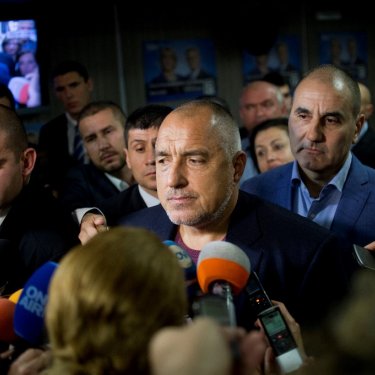Bulgaria: RSF unveils proposal for press freedom to be at the centre of Bulgaria’s next election

In view of the Bulgarian government’s manifest lack of interest in prioritizing press freedom, Reporters Without Borders (RSF) is unveiling its proposal for creating an independent and pluralistic national commission with the aim of making this a central issue during Bulgaria’s next parliamentary election campaign.
Bulgarian Prime Minister Boyko Borisov has not examined RSF’s proposal as he promised during a meeting with RSF representatives in December 2019 after Bulgaria signed the International Partnership on Information and Democracy. Seven months after sending him a road map for improving press freedom in Bulgaria, RSF has still not received a response from the Bulgarian authorities.
“The Bulgarian government is unfortunately demonstrating a clear lack of interest in improving freedom of the press and in respecting its international obligations,” said Pavol Szalai, the Head of RSF’s European Union and Balkans Desk during an international conference organized on 12 October in Sofia by EURACTIV Bulgaria, a news website.
“Although press freedom is enshrined in its constitution, Bulgaria risks becoming a country with no one to exercise it,” Szalai added, calling on Bulgarian journalists, many of whom attended the conference, to mobilise in order for their problems to be the subject of a major societal and political debate ahead of next spring’s parliamentary elections.
With this objective on its mind, RSF has decided to publish the proposal that it gave to the prime minister in March 2020, which was to create an independent and pluralistic national commission for improving freedom of the press in Bulgaria.
Chaired by a well-known international human rights figure and consisting of Bulgarian and international experts, the commission would be tasked with drawing up concrete recommendations. Drafted in close cooperation with the EU, Council of Europe and Organization for Security and Cooperation in Europe, the proposed measures would then be the subject of a societal debate in a national convention and a political debate in parliament.
The commission’s mandate would cover:
- legal guarantees for press freedom;
- regulation of the broadcast media;
- the right to the confidentiality of sources;
- press offences, procedural guarantees in judicial cases involving press offences, and defence resources;
- news media pluralism;
- concentration of media ownership;
- measures supporting editorial independence;
- allocation of state advertising;
- state aid for the media;
- allocation of European funds;
- legislation governing print media distribution;
- functioning and funding of public broadcasting;
- access to public information;
- journalistic training.
At the conference on 12 October, Věra Jourová, the European Commission’s Vice-President for Values and Transparency, said that, by the end of the year, the European Commission would present the European Democracy Action Plan which would facilitate combatting strategic lawsuits against public participation (SLAPP).
She also promised that the Commission directorates responsible for state aid and public procurement would examine the allocation of state advertising and European funds to the Bulgarian media. The unfair and non-transparent distribution of Bulgarian and EU funds is used as a political tool to silence critical journalists and independent media. This issue, as well as judicial harassment, the lack of media ownership transparency and, in general, weak respect for the rule of law were identified by the conference’s participants as the main problems for press freedom in Bulgaria.
Bulgaria is ranked 111th out of 180 countries in RSF's 2020 World Press Freedom Index – the lowest ranking of any country in the EU/Balkans region.



